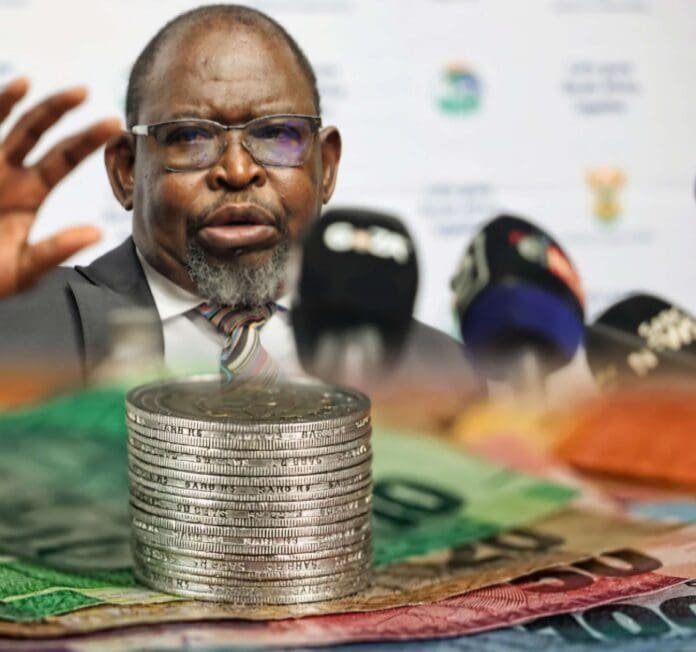Treasury backtracks on VAT increase amid political pressure
Just one week before the planned 0.5 percentage point hike to Value-Added Tax (VAT) was set to take effect, the National Treasury has announced a complete reversal of the controversial policy. The proposed increase—from 15% to 15.5%—will no longer be implemented on May 1, 2025.
“The Minister of Finance will shortly introduce the Rates and Monetary Amounts and the Amendment of Revenue Laws Bill (Rates Bill), which proposes to maintain the Value-Added Tax (VAT) rate at 15 per cent from 1 May 2025, instead of the proposed increase to VAT announced in the Budget in March.”
The decision to forgo the increase follows intense negotiations between political parties, and careful consideration of the recommendations of the parliamentary committees, Treasury added.
However, the reversal leaves a R75 billion revenue shortfall over the medium term, forcing the government to reconsider spending plans.
Winners and losers: Who gains from the VAT u-turn?
The winners
- Low-income households
- Avoided immediate price hikes on basic goods like bread, milk and cooking oil
- Won’t face complex VAT relief measures that often fail to fully compensate
- Opposition parties
- DA scores political points after threatening legal action
- Smaller parties prove influence in budget negotiations
- Spared costly repricing exercises and system updates
- Maintain current pricing structures without confusing customers
The losers
- National Treasury
- R75 billion budget hole creates fiscal headache
- Forced into embarrassing policy reversal after months of planning
- Public services
- Hospitals and schools may face tighter budgets
- Infrastructure projects could be delayed
- Economic reformers
- Sets dangerous precedent for political meddling in fiscal policy
- Postpones necessary tax structure modernisation
Why was the VAT hike reversed?
The initial proposal aimed to bolster funding for critical public services, but opposition was swift and widespread. Political parties, civil society, and ordinary South Africans rejected the hike, arguing it would disproportionately hurt low-income households.
Treasury acknowledged the dilemma, stating:
“There are many suggestions, however some of them would create greater negative consequences for growth and employment and some of them, while worthwhile, would not provide an immediate avenue for further revenue in the short term to replace a VAT increase.”
Political reactions and behind-the-scenes negotiations
The decision came after intense last-minute negotiations between political parties:
- 10 PM – Wednesday, April 23: The ANC announced a joint media briefing with several opposition parties (IFP, ActionSA, PAC, Rise Mzansi, BOSA, UDM, Good Party, Al-Jamah, Patriotic Alliance) to resolve the “fiscal framework impasse.” Notably, the DA was excluded.
- 11 PM: The DA revealed that Treasury lawyers had approached them to settle their legal challenge against the VAT hike.
- 12:15 AM: National Treasury announces – Via official statement – the VAT hike reversal
ANC spokesperson Mahlengi Bhengu-Motsiri framed the compromise as statesmanship:
“In a moment that calls for mature leadership, collaboration and constructive engagement, a number of political parties have demonstrated their resolve to place the national interest above narrow, political point-scoring.”
Meanwhile, DA Federal Chairperson Helen Zille confirmed negotiations:
“The DA can confirm reports that lawyers acting for the Minister of Finance have approached our lawyers proposing an out-of-court settlement…”
What happens next? Fiscal adjustments and challenges
1. Revised budget bills and spending cuts
With the VAT hike scrapped, Treasury must now:
- Withdraw and revise the Appropriation Bill and Division of Revenue Bill
- Identify R75 billion in spending cuts over the next three years
- Reassess social relief measures meant to cushion low-income households
2. Where will the cuts fall?
While specifics remain unclear, potential areas include:
- Infrastructure projects (delays or scaling back)
- Public sector wage adjustments
- Subsidies and SASSA grants (though politically sensitive)
Treasury warned:
“Parliament will be requested to adjust expenditure in a manner that ensures that the loss of revenue does not harm South Africa’s fiscal sustainability.”
3. Alternative revenue streams
The government may explore:
- Higher SARS collections through improved tax compliance
- Wealth taxes or sin tax hikes in future budgets
- State asset sales (though controversial)
ALSO READ: Treasury’s Tough Budget Speech Dilemma: VAT Hike or Scrapping The SASSA SRD Grant
Economic implications: short-term relief, long-term uncertainty
Consumers & businesses
- Immediate relief for households facing high living costs
- Businesses avoid price restructuring linked to VAT changes
- But spending cuts could indirectly impact economic growth
Markets & investors
- Mixed signals: Fiscal discipline vs. revenue shortfalls
- Rand and bonds may face pressure if deficit fears grow
Rating agencies
- Moody’s and Fitch will scrutinize South Africa’s ability to stabilize debt without VAT hike
The bottom line: Relief for now, tough road ahead
Scrapping the VAT hike delivers short-term relief for cash-strapped households, but the government now faces an even tougher balancing act.
With R75 billion missing from the budget, hard choices on spending cuts are inevitable—and not everyone will be spared.
The real test? Whether Treasury can plug this gap without deepening austerity or sparking new political battles. One thing’s certain: this last-minute reversal proves public pressure works, but the bill always comes due eventually.
Stay informed with the latest developments— NOWinSA: Stories Shaping South Africa Today.

